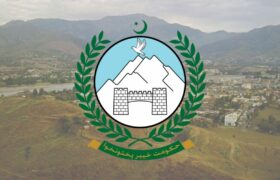At the dawn of seventeenth century, when Afghans were in fog of war, from West by Persians and East by Mughals, a kid by the name of Abdur Rehman was born in a town close to Peshawar called Bahader Kalay. He belonged to Mohmand clan of the Pathans. The specific date of his birth and deaths are not known, yet it is widely believed that Rahman Baba lived during Mughal King Aurangzeb era (AD. 1659 – 1707). Rahman Baba lived a tranquil life and never remained a part of innate clashes of his days. It is believed that he was the child of a town chief (Malik) named Abdul Sattar. Rahman Baba had a brother whose name was Aziz Khan. As per some historians, Rahman Baba belonged to a poor family and was a son of local village molvi. Regardless of whether Malik or not, Rahman Baba depicts himself as a helpless faqir:
May no one be without life and livelihood;
As I am lifeless and penniless
Rahman Baba received his initial education from his home town. He studied “Fiqah and Tassawwuf” from Mullah Muhammad Yousaf Yousafzai. After his initial education, he went to Kohat for further studies. In Kohat he remained under Haji Bahadur, a notable Mystic and researcher of the Sub-Continent.
Rehman baba was an ascetic but various unfounded theory have been made about who Rehman’s guide may have been and to which Sufi order he was attached. Sabir suggests that Rehman had a naqsh bandi tariqa initiation in Kohat as well as training from the sons of peer baba. While Schimmel and Saad Ahmed Bakhsh assign Rehman to the Chishti order. Some people claims that Rehman baba was a pure Hanafi. However, there are no established theories available about his initial brought up and education.
Abdur Rahman Baba, the best proponent of Pashto literature, was a man of character and extraordinary allure. At a youthful age, he began contemplating and understanding verses, particularly Persian. As he developed more and established himself as a poet, he was drawn towards the love of Allah. He started questioning the reason of existence and ultimately surrendered himself in entirety to Allah. Rehman Baba work primarily revolves around Sufiism and love for Allah. His work is regarded by many Pashtuns to be far more than poetry and next only to the Quran.
A collection of Rehman’s poetry called The Diwan (Anthology) of Rehman baba, contains 343 poems which are mainly written in his native language Pashto. There are over 25 original hand-written manuscripts of The Diwan scattered in various libraries worldwide including 10 in the Pashto academy in Peshawar, 4 in the British library, 3 in the Bibliotheque Nationale in Paris as well as copies in the John Rylands library in Manchester, the Bodleian library in Oxford and the University library of Aligath. The first printed version was collected by the Angelican Missionary T.P. Hughes and printed in Lahore in 1877. It is this version which remains the most commonly used and read to this day. The verses of Rahman Baba are brimming with messages. He showed the entire world the genuine importance of life through the adoration and magnificence of Allah.
His work was appreciated far and wide, from Afghanistan to Central Asia to the Indian Subcontinent. National and political pioneers utilized his verses for free development. Because of his prevalence, he was given a title of “Baba” (Father of Nation). His work has inspired an array of new writers who has modelled their poetry on Rehman’s Baba poetry style.
It is widely believed that he died in December 1711 and his tomb is housed in a large domed shrine or mazaar on the southern outskirts of Peshawar (Ring road Hazar khwani). The site is a popular place for poets and mystics to collect and recite his popular poetry. After his death, writers and artists flocks to his gravesite annually. This annual congregation has attained a festive status over the years which has carried on as part of Peshawar’s rich cultural tradition to this day. Every year on 4 April, people from various places of Pakistan and Afghanistan visit Shrine of Rehman Baba to celebrate his Urs Mubarak. During the Urs, notable artist remembers Rehman Baba with poetry. There is also the burial chamber of his dear companion Thawas Gul Baba at his shrine.




